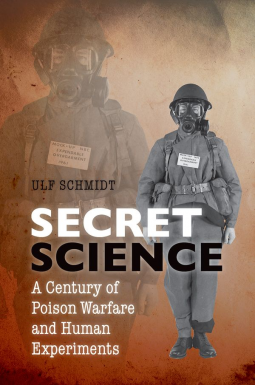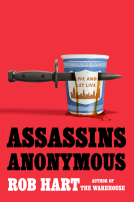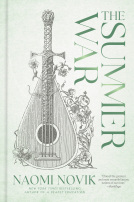
Secret Science
A Century of Poison Warfare and Human Experiments
by Ulf Schmidt
This title was previously available on NetGalley and is now archived.
Buy on Amazon
Buy on BN.com
Buy on Bookshop.org
*This page contains affiliate links, so we may earn a small commission when you make a purchase through links on our site at no additional cost to you.
Send NetGalley books directly to your Kindle or Kindle app
1
To read on a Kindle or Kindle app, please add kindle@netgalley.com as an approved email address to receive files in your Amazon account. Click here for step-by-step instructions.
2
Also find your Kindle email address within your Amazon account, and enter it here.
Pub Date Sep 09 2015 | Archive Date Aug 06 2015
Description
From the early 1990s, allegations that servicemen had been duped into taking part in trials with toxic agents at top-secret Allied research facilities throughout the twentieth century featured with ever greater frequency in the media. In Britain, a whole army of over 21,000 soldiers had participated in secret experiments between 1939 and 1989. Some remembered their stay as harmless, but there were many for whom the experience had been all but pleasant, sometimes harmful, and in isolated cases deadly.
Secret Science traces, for the first time, the history of chemical and biological weapons research by the former Allied powers, particularly in Britain, the United States, and Canada. It charts the ethical trajectory and culture of military science, from its initial development in response to Germany's first use of chemical weapons in the First World War to the ongoing attempts by the international community to ban these types of weapons once and for all.
It asks whether Allied and especially British warfare trials were ethical, safe, and justified within the prevailing conditions and values of the time. By doing so, it helps to explain the complex dynamics in top-secret Allied research establishments: the desire and ability of the chemical and biological warfare corps, largely comprised of military officials, scientists, and expert civil servants, to construct and identify a never-ending stream of national security threats which served as flexible justification strategies for the allocation of enormous resources to conducting experimental research with some of the most deadly agents known to man.
Secret Science offers a nuanced, non-judgemental analysis of the contributions made by servicemen, scientists, and civil servants to military research in Britain and elsewhere, not as passive, helpless victims 'without voices', or as laboratory and desk perpetrators 'without a conscience', but as history's actors and agents of their own destiny. As such it also makes an important contribution to the burgeoning literature on the history and culture of memory.
Secret Science traces, for the first time, the history of chemical and biological weapons research by the former Allied powers, particularly in Britain, the United States, and Canada. It charts the ethical trajectory and culture of military science, from its initial development in response to Germany's first use of chemical weapons in the First World War to the ongoing attempts by the international community to ban these types of weapons once and for all.
It asks whether Allied and especially British warfare trials were ethical, safe, and justified within the prevailing conditions and values of the time. By doing so, it helps to explain the complex dynamics in top-secret Allied research establishments: the desire and ability of the chemical and biological warfare corps, largely comprised of military officials, scientists, and expert civil servants, to construct and identify a never-ending stream of national security threats which served as flexible justification strategies for the allocation of enormous resources to conducting experimental research with some of the most deadly agents known to man.
Secret Science offers a nuanced, non-judgemental analysis of the contributions made by servicemen, scientists, and civil servants to military research in Britain and elsewhere, not as passive, helpless victims 'without voices', or as laboratory and desk perpetrators 'without a conscience', but as history's actors and agents of their own destiny. As such it also makes an important contribution to the burgeoning literature on the history and culture of memory.
Available Editions
| EDITION | Other Format |
| ISBN | 9780199299799 |
| PRICE | $39.95 (USD) |










